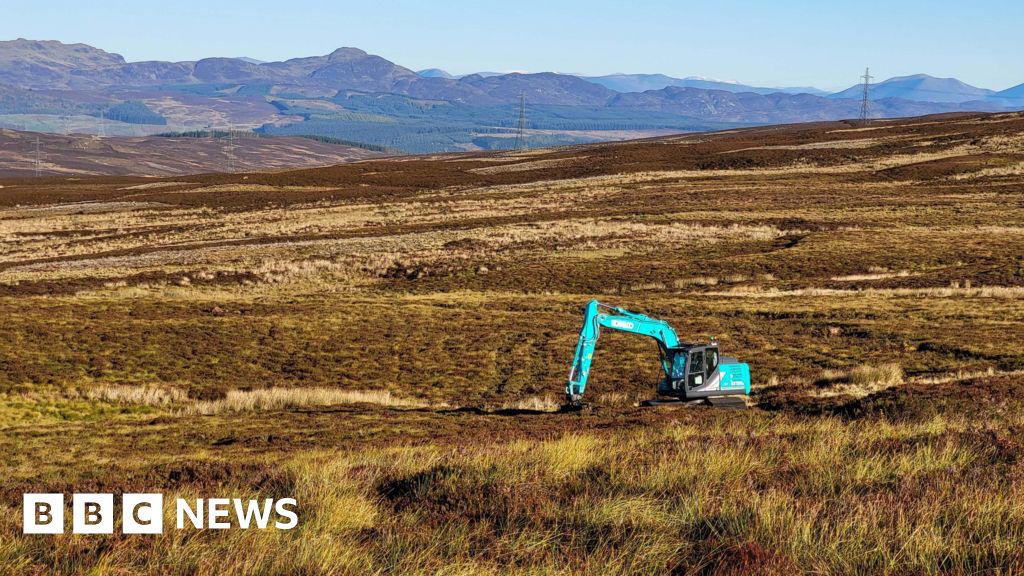One of Scotland’s most powerful weapons in tackling climate change is not being properly recognised, experts have claimed.
Restoring poor quality peatlands could cut Scotland’s emissions by almost as much as decarbonising our entire housing stock.
But it is claimed that the most influential climate change body advising large corporations does not recognise peatland restoration as a legitimate means of offsetting greenhouse gas emissions.
A group of companies and charities has written to the Science Based Targets Initiative (SBTi) to say that decision is holding back the flow of private finance.
This is the best summary I could come up with:
One of Scotland’s most powerful weapons in tackling climate change is not being properly recognised, experts have claimed.Restoring poor quality peatlands could cut Scotland’s emissions by almost as much as decarbonising our entire housing stock.But it is claimed that the most influential climate change body advising large corporations does not recognise peatland restoration as a legitimate means of offsetting greenhouse gas emissions.A group of companies and charities has written to the Science Based Targets Initiative (SBTi) to say that decision is holding back the flow of private finance.SBTi has insisted it does encourage companies to invest in peatland restoration on top of cutting their emissions.
Scotland’s peatlands, which have developed over thousands of years, are formed by layers of mosses and other vegetation becoming trapped in the water at they die off.The waterlogged ground prevents oxygen from decomposing the dead plants which locks carbon into the landscape.But poorly maintained peatlands - which make up the vast majority of those in Scotland - become dried out which releases planet warming greenhouse gases back into the atmosphere.The majority of the UK’s peatlands are in Scotland’s upland regions, which is home to the Flow Country, the most intact and extensive blanket bog system in the world.It is estimated that peatlands make up at least 20% of Scotland’s land mass but the vast majority is in a degraded condition.Each year they release the equivalent of more than six million tonnes of carbon dioxide which is almost the same as emissions from heating our homes.Home heating makes up about 15% of Scotland’s overall emissions.In 2020, the Scottish government pledged to restore 250,000 hectares of peatland by 2030 but have been slow to do so, with only about 18,500 being restored during the first three years of the decade.It is generally felt that public funding alone will not be enough to protect the vast carbon stores locked up in peatlands and that private finance is needed.Freddie Ingleby from Caledonian Climate Partners, a consultancy firm which helps estates restores peatlands, said the current system focuses too much on tree-planting and future carbon removal technologies.He said: “What we would like SBTi to do is to allow emission reduction carbon credits from peatland projects to be included in businesses’ net zero targets setting standard which it’s not allowed to do today.”
SBTi works with about 5,000 businesses globally, including Tesco, Kellogg’s and the BBC, to help them transition to being carbon neutral.They advise on how to reduce the bulk of their greenhouse gases and then buy ‘carbon credits’ which finance schemes which ‘offset’ residual emissions, primarily through tree planting.The letter to the SBTi has been signed by several companies who are already part of the scheme, although their details have not been disclosed.Several charitable organisations have also signed the letter.It accuses the organisation of constraining international efforts to restore peatlands and sending an “unscientific message to investors that peatland restoration is not a legitimate way to tackle the climate crisis”.It calls on them to allow peatland restoration to be used to offset unavoidable emissions.
Among the signatories is the International Union for the Conservation of Nature (IUCN) UK Peatland Programme.Dr Renée Kerkvliet-Hermans, peatland code manager, describes restoration as “crucial” in tackling climate change.
She said about 80% of the UK’s peatlands are degraded and actively emitting more carbon each year than all our trees and forests are soaking up.
“We are seeing active sales falling through or companies not even wanting to look at peatland carbon credits because of SBTi,” she said.SBTi said its main aim is to encourage companies to avoid and reduce greenhouse gas emissions in the first place before considering “counterbalancing residual emissions”.It said: “We also strongly encourage and enable companies to restore natural ecosystems, including peatlands”.It added that “this must be in addition to and not instead of” measures which prevent peatlands being damaged in the first place.
The original article contains 642 words, the summary contains 643 words. Saved -0%. I’m a bot and I’m open source!



